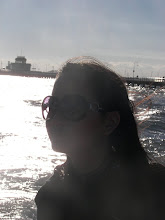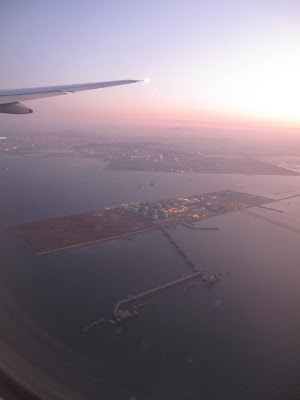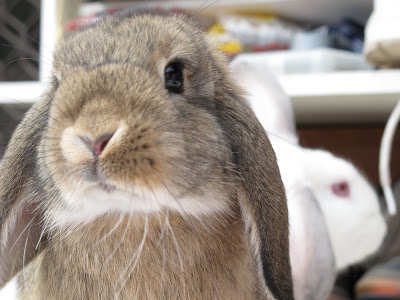I have interviewed some interesting personalities during the course of my degree, but yet the most unexpected and impromptu interview turned out to be the most eye-opening experience. Sometime back, I did an interview with someone working in the Old Melbourne Jail, which has since closed down and turned into a tourist sight-seeing place, where tours such as ghost trails are being held.
-----
“Enjoy your freedom – while it lasts.” Natalie Carr clicks the metal gates open to release crowds of people into the daylight. The location is Police Watch-house at the Old Melbourne Gaol, and Carr is smartly-attired in a navy blue police outfit, mega-sized black sunglasses, her hair neatly tied in a bun complete with a no-nonsense piercing glare. But, the crowds in question are not prisoners, they are tourists. And, Carr is an actor.
“My job is to play the role of a police, I arrest tourists, give them a charge sheet, process them in the charge area, search them, and then I lock them up in the cells.”
The cells that Carr, a 38-year-old sergeant at the Watch-house is talking about are the very same precinct which, since 1850 housed Victoria’s most hardened criminals. Some of the more high–profile criminals included the notorious bushranger Ned Kelly, Chopper Read, Ronald Joseph Ryan and Jean Lee who were the last man and woman to be judicially executed in Australia. It is the very same watch house where Ryan led a daring escape on 21 April 1960.
Forward to 16 October 2008, and Carr is standing before those very cells, a bunch of keys dangling nosily in her pockets.
“Sometimes, I close cell doors, and turn around, and they have been opened again. That’s strange, because there’s no wind in here. When everyone goes home, and we are locking up, it’s an eerie place.”
She leads me through a sneak peek along the gallows and into the cells of the 19th century Goal, each of which is a similar replica of the other: four graffiti-scrawled walls, dirty, small and reeking of a morbid stench, with hardly any natural light. The funereal atmosphere of a bad omen hangs around the cells like an albatross.
When Carr is not busy ‘arresting’ people, she works as a singing teacher in Victoria primary schools and performs at The Dog Theatre in Footscray. No doubt, that she remains passionate about her unusual job at the Old Melbourne Gaol, which keeps her on her toes.
“The show changes every time I do it, purely because I have different people in the audience who react differently every time. I have had some people who had claustrophobia or panic attacks, and had to leave. Some children get very upset and cry. We have some school groups coming in, and some of these young people get frightened about being locked up and seeing what it is really like inside.”
And what does she like best about her job?
“It’s something different, only 5 people in the whole state do what I do.”
-----
Afternote:
The prison gallows was a chilling experience, it reeked of the smell of death. I walked through the galleries which since 1841, has seen the hanging of both men and women. These inmates were hanged publicly, such that when the rope that hung around their neck was tightened and the trap door opened, their body was left to dangle in the middle of the other inmates' prison cells. Carr led me through quick peeks in the prison cells, which was completely bare except for a small toilet bowl at the very far end of the corner. There were no windows, and obviously no light, it is not hard to imagine that one can go crazy staying in an enclosed space like this. Although the prison has seen been turned into a touristy area, but as you stroll through the halls of the prison cells, it is as though you can still hear the silent screams of those who once lived and died there.


 We finally got our arses out of the house and off we go to Incheon's departmental stores. The things there are freaking expensive, but they were having a one-day only 70% sale, which was a steal for the both of us.
We finally got our arses out of the house and off we go to Incheon's departmental stores. The things there are freaking expensive, but they were having a one-day only 70% sale, which was a steal for the both of us.















































